Kumpulan foto2 lama
Mahasiswa dahulu :
Perhimpunan Indonesia
Taman Siswa
Ki Hadjar Dewantara in de Taman-Siswa Kweekschool
‘De Hollandsche cursus’ aan de Kweekschool voor Inlandse Onderwijzers te Ambon
Inlandse School der Eerste Klasse te Buitenzor
Bandingkan dengan mahasiswa sekarang..
sorry kalo

-
04-11-08, 17:56 #16
 Kutipan
Kutipan
-
04-11-08, 18:49 #17



- Join Date
- Oct 2008
- Location
- jakarta
- Posts
- 26
- Points
- 44.20
Thanks: 0 / 0 / 0
aghhh apaaan tuh males gw baca nya
panjang bener lagian
tapi satu hal, yg gw yakini : indonesia ga bakalan maju !!!!
-
04-11-08, 18:51 #18
-
04-11-08, 18:52 #19

males baca?
loe sih yang ga bakalan maju, bukan Indonesia...
-
04-11-08, 18:54 #20










- Join Date
- Apr 2007
- Location
- Glastonbury
- Posts
- 2,337
- Points
- 2,853.20
Thanks: 0 / 8 / 2
-
04-11-08, 18:56 #21

ya... kalo semua kek dia, dijamin sih Indo ga bisa maju... Sayangnya... Jutaan anak bangsa lainnya tidak seperti dia. Mungkin dia 1 in a Billion?
-
04-11-08, 18:59 #22



- Join Date
- Oct 2008
- Location
- jakarta
- Posts
- 26
- Points
- 44.20
Thanks: 0 / 0 / 0
yah sampe sekarang ga maju2 , kapan maju nya , gw mau nya indonesia maju pas gw masih idup , jadi bisa gw bisa ngerasaain
dan lo perlu tau juga kalo indonesia mau maju tergantung dari elu2 juga
 wcool:
wcool:
kalau gw liad perkembangan news sekarang si mustahil
gw ini mengikuti berita2 perkembangan dunia
gw si bukan nyumpahin ya , tapi menurut berita2 yg gw denger ya gitu
yg gw tau indonesia setiap tahun nya berkembang 0,2% pertahun
-
04-11-08, 19:06 #23


















- Join Date
- Dec 2007
- Location
- Western Jakarta Former ID: ∙ ∙ ∙ RiX777
- Posts
- 1,736
- Points
- 7,206.21
Thanks: 219 / 769 / 291 TIDAK MENERIMA BARCEN
TIDAK MENERIMA BARCEN
Embrace: The Philosophy of RiXtopia

Ti ati.
✓ The World of RiX ~ Index
✓ My SoundCloud
-
04-11-08, 19:07 #24
-
04-11-08, 19:08 #25
-
04-11-08, 19:08 #26



- Join Date
- Oct 2008
- Location
- jakarta
- Posts
- 26
- Points
- 44.20
Thanks: 0 / 0 / 0
wow , hah? mana mungkin orang sesempurna gw gini bisa menghambat
ga salah kk ????????????????????
kalau ngibul pinter2 dikit lah , jgn sampe ketauan bohong nya gitu
-
04-11-08, 19:09 #27
-
04-11-08, 19:10 #28

Kami, LASKAR KAISAR XUDU, mulai hari ini AKAN BERUSAHA untuk merubah jalan pikiran ORANG YANG TERSESAT INI.
Indonesia tak bisa maju? Apa yang Anda katakan sungguh SINIS dan pesimis, tidak aneh untuk makhluk LOWLIFE seperti Anda.
Baca, jika Anda bisa dan MAU membaca!
Indonesia as a New Democratic Power
Newsweek
Indonesia As the New India
This stable democracy with a hot market economy resembles another Asian giant in the 1990s.
George Wehrfritz
NEWSWEEK
From the magazine issue dated Oct 20, 2008
Jakarta today could be any of Asia’s 21st-century boomtowns. The malls buzz, traffic snarls and modern office towers dominate the skyline. It all feels profoundly normal—but that’s big progress in a place that, barely ten years ago, seemed destined for ruin. Following the fall of longtime strongman Suharto, and with Indonesia reeling from the 1997-98 Asian financial crisis, many analysts feared that Asia’s third-biggest country (population: 235 million) would go the way of Yugoslavia. Instead, it has become a cohesive, robust and exuberantly democratic moderate Muslim nation. Things are so buoyant that Indonesia invites comparison to another Asian giant: India.
Both remain corrupt, chaotic and excruciatingly complex. Yet each is also an attractive emerging economy, and in India’s case, a star of the developing world. Could Indonesia be next? Its economy grew by 6.3 percent last year, the main stock exchange ranks among the world’s best performers since 2003 and last year foreign direct investment nearly tripled, to a respectable $4 billion. All of which resembles India in the 1990s, when reforms kick-started a potentially massive economy—though outsiders barely noticed until the IT sector took off and growth passed 8 percent. In Indonesia, the key sectors are energy, mining and soft commodities like rubber, palm oil and cocoa. And in an exclusive interview, President Susilo Bambang Yudhoyono says he sees no inherent reason why a big democracy like his can’t grow as fast China, which has posted 10 percent growth rates in recent years.
That would put Indonesia on a lot of magazine covers. In fact, the country already looks better than India in two ways: its per capita income ($3,348) is a third higher, and thanks to Jakarta’s fiscal austerity, it now boasts one of the lowest debt ratios in the world. “After ten years of restructuring, Southeast Asia’s largest economy is in great shape,” says Nicholas Cashmore, CLSA’s country head and chief researcher in Jakarta.
Indonesia’s political turnaround has been just as dramatic as its economic one. The president, known universally as SBY, is a former general who was elected in mid-2004 and has since become the country’s most effective democratic leader. In four years, he has helped Indonesia roll up its terrorist problem and rebuild from the 2004 tsunami. Less appreciated (but more enduring), he has backed a profound political decentralization program, empowering hundreds of local administrations. Jakarta now rules by consensus, not decree. This has its downsides: it makes it impossible to railroad through big national development projects of the sort China is famous for. As SBY himself admits, “in many circumstances, we face local communities that don’t agree with government projects, so we have to convince them. I do not think the system is wrong. In a democracy like ours, change, reform and resistance are normal.”
The country’s largest parties now basically agree on economic policy and the need to reduce corruption, improve the rule of law and make government more efficient. Key democratic institutions—including a free press, impartial courts and a legislature chosen by voters—are remarkably robust, and the once all-powerful military has largely removed itself from politics. Meanwhile, regional autonomy has triggered economic booms at the periphery, in contrast to the typical Southeast Asian model. “From the U.S., the U.K. or even Hong Kong,” writes Cashmore, “it is difficult to comprehend the magnitude of Indonesia’s potential [or] appreciate just how much more there is to the country beyond Jakarta.” By his calculation, greater Jakarta now accounts for just 15 percent of Indonesia’s GDP, a relatively small share compared to other Asian capitals.
Indonesia’s accomplishments are all the more impressive when you remember how far and fast the country has come. The fall of Suharto’s New Order (a highly centralized system that vested absolute power in the dictator and his cronies) 10 years ago was accompanied by a financial meltdown so severe that the IMF had to step in. Indonesia also faced fierce separatist insurgencies, Christian-Muslim violence and Islamic extremism underscored by the 2002 Bali bombing. The country seemed to be teetering on the brink of wholesale disintegration. Yet today, as Australian National University economist Andrew MacIntyre and the Asia Foundation’s Douglas Ramage argued in a recent report, observers should start thinking of Indonesia “as a normal country grappling with challenges common to other large, middle-income, developing democracies—not unlike India, Mexico or Brazil.”
In some ways Indonesia’s democracy is even more sophisticated than those other states’. Take decentralization. Jakarta, like New Delhi, oversees national defense, internal security, finance, foreign policy and the justice system. But unlike the Indian government, Indonesia’s—thanks to two “big bang” reform packages passed in 2001 and 2006, and supported by SBY—must now coordinate most other activities through the country’s 33 provinces and nearly 500 local administrations, where popularly elected leaders make policy, manage two thirds of all civil servants and oversee everything from schools to economic development. As World Bank economists Wolfgang Fengler and Bert Hofman observe in a soon-to-be-published study, Indonesia has turned itself from “one of the most centralized countries in the world into one of the more decentralized ones.”
To see what that means on the ground, follow the money. Under a new fiscal system implemented in 2001, regions are allocated a huge slice of the country’s budget to spend more or less as they please. Poor and remote areas receive the most per capita, and those with abundant natural resources get shared extraction revenues. According to the World Bank, regional governments in Indonesia now account for 36 percent of all public expenditures, compared with an average of just 14 percent in all developing countries. And locals can promote whatever agendas they choose. “This is the real revolution,” says Erman Rahman, who heads the World Bank’s local governance initiatives in the country. Regions with proactive leaders have become laboratories of experimentation from which innovative anti-corruption, public-health and economic-growth initiatives have emerged. For his part, SBY has enabled this process by maintaining macroeconomic discipline and political stability. And his support for local autonomy has undermined separatism, extremism and communal violence.
One regional pioneer, Gamawan Fauzi, took power in West Sumatra’s Solok region in 2001 and quickly created a one-stop shop for government services, replacing an opaque and complex web of offices and brokers. Fauzi’s concept was to bring all government services under a single roof, post set fees, promote autopayment and guarantee prompt service as a means of rooting out corruption. And it has worked: the model has since been emulated across Indonesia, and Transparency International reports that corruption, while still high, has been reduced substantially.
Other local leaders have earned fame by initiating innovative new programs. Gede Putrayasa, who heads the poorest of nine regencies on the tourist island Bali, won office in 2001 on a pledge to provide universal medical insurance and free education. The latter proved relatively easy (he simply waived the 5,000 rupiah monthly fees), but improving health care without breaking the local budget was tougher. Under the old system, funds went to hospitals and local administrators, who did things like stockpile pharmaceuticals procured from companies that paid kickbacks. Putrayasa’s innovation: provide every local household free health insurance that compensates clinics for services actually provided. “There’s not a big savings,” says Putrayasa, “but everyone is covered and the efficiency is much better because there is no longer any corruption.”
Such reforms have stimulated economic growth. Putrayasa’s health-care and education initiatives (as well as a jobs program that sends underemployed rice farmers to Japan) have reduced the local poverty rate fourfold to just 5.5 percent today. Better local governance has also made Indonesia a major beneficiary of the global soft commodity boom. Together, the value of its four largest crops—rubber, coconut, palm oil and cocoa—rose from $2.3 billion in 2000 to an estimated $19 billion in 2008, CLSA calculates. That’s thanks to local leaders like Fadel Muhammad, governor of the hardscrabble province of Gorontalo on the island Sulawesi, who turned his constituents into the country’s best corn farmers by deploying teams of agricultural consultants; providing subsidized seeds, fertilizers and rental machinery to farmers; and giving cash rewards to village leaders who boost yields. Since 2002, Gorontalo’s poverty rate has shrunk from 49 to 29 percent.
Of course, decentralization has its problems. Analysts and watchdog groups say that while the number of effective leaders in the 500 local administrations has spiked from a handful to 50 or more under SBY, they are sometimes particularly effective at blocking necessary national reforms and projects. The result, says Ramage, is that progress will be “evolutionary, not revolutionary.” For example, the Trans Java highway, which would link Jakarta with Indonesia’s second-largest city, Surabaya, was launched in 2004 with a target completion date of 2009, but is still only 10 percent done because of local opposition.
Nonetheless, Indonesia has already become a beacon of stability in Southeast Asia and the Islamic world. Its antiterrorism campaign—Indonesia has shut radical madrassas, established an effective counterterrorism force and kracked down hard on suspected cells, while also avoiding human-rights abuses—is seen as a model for the region. And as the world’s most populous Muslim country, Indonesia’s democratization has implications from Morocco to Mindanao in that it exemplifies an alternative to zealotry, intolerance and extremism. “Indonesia is not immune to radicalism we see worldwide, but this is exactly why we must maintain our identity as a moderate, tolerant nation,” says Yudhoyono. “It enables us to prevent a clash of civilizations.”
SBY is likely to win re-election next year, but even if he loses, analysts don’t expect any sharp change in policy, because all the major political camps in Jakarta agree on the current reform blueprint. Even India does not enjoy that kind of stable consensus on how to catch China.
With Greg Hunt in Hong Kong
URL: http://www.newsweek.com/id/163572
Indonesia’s promising economic outlook 2009
Cyrillus Harinowo , Jakarta | Tue, 09/02/2008 10:20 AM | Opinion
Jakarta Post
In the coming weeks, most corporate businesses will start preparing their budgets. Some with more extensive operations and networks have in fact started the drafting process directly after the President’s Aug. 16 speech before Parliament.
During this process much time is devoted to predicting the direction of the economy. Will next year be bullish, as we are now experiencing, or will it be affected by the global downturn?
In his presidential address, President has outlined the government’s predictions about next year’s economic prospects. The most important number is the 2009 economic growth target: 6.2 percent. The nominal gross domestic product (GDP) has also been specified at Rp. 5,000 trillion (US$547 billion).
To compare with 2008 figures, first quarter GDP rate of growth was 6.3 percent, second quarter, 6.4 percent. The nominal GDP was Rp. 1,126.8 trillion in the first quarter and Rp. 1,230.9 trillion in the second. Will the uptrend continue until next year, or are there specific reasons to predict otherwise?
Many people are skeptical about our economy. Some of their convictions are justified, especially if we look at the pockets of poverty, especially in urban areas. However, to harp on that issue is unfair to others who are looking for a better estimation of opportunities for their business activities. Aside from being sympathetic to the poor, we have to be more balanced by assessing the situation objectively.
Predicting an economic prospect means judging the movement of the economy, a dynamic process. Successful predictions also account for which economic sectors may have better prospects than others.
Judging from previous performance, the Indonesian economy so far seems to be decoupled from world trends. Despite the economic slowdown in the US and Europe, our economy continues to show resilience.
Indonesia’s previous economic performance reflects the strength of the two drivers of our growth: the population-based economy and the resource-based economy. In the population-based economy, we noted strong growth in manufacturing, such as in automotive and consumer products; property development and construction; and many others.
Apparently the rising domestic fuel prices in May did not significantly erode the increasing income of the population as a whole. Our business entrepreneurs note their expansion plans continue to yield a comfortable return. On a radio talk show I tuned in yesterday, a new and growing company, Bengawan Solo Cafe, has been able to set up 27 outlets in just four years.
Similarly Solaria, a fast-growing local restaurant chain, has expanded to more than one hundred outlets in just a few years. These are just anecdotal examples of such dynamism. The population-based economy is largely a domestic economy.
This palpable growth is not just taking place in urban areas. Many rural areas are enjoy faster development than urban centers.
Meliau, for instance, a village in Sanggau regency, West Kalimantan, used to be a backwater. With the rapid rise in the price of palm oil and increased production, the village now boasts nine motorcycle dealers.
I also believe, once the Pontianak-Tayan highway is completed, the West Kalimantan hinterland will see much faster growth and better living standards for its people. This last example reflects the strength of the second driver of the economic growth: the resource-based economy.
Taking the motorcycle dealers as an example, they will eventually drive demand at the factories in Java, thus promoting manufacturing sector growth. This shows how a sector which has received a strong pull from the population-based economy at the same time enjoyed another pull from the multiplier effects of the resource-based economy. I am sure this trend will continue.
In forecasting the 2009 outlook, I am fully aware many institutions will make conservative predictions. Unsurprisingly, the President himself predicted a growth rate of just 6.2 percent. Since the growth rate will most probably reach 6.4 or 6.5 percent for all of 2008, can we infer the President is predicting a downturn in our economy?
It’s always good to hear we can boast about our performance if we attain a growth rate higher than the target. However, setting the bar too low can also be self-fulfilling. Businesspeople will use the government’s figure as their reference, which means they may set their companies’ targets too low.
Based on my observations visiting companies in Java and elsewhere, I can infer optimism in the field still abounds. In fact, many business owners were puzzled this year when their companies’ performance far exceeded their targets. Therefore, it will be interesting to see whether these same people will repeat that mistake another year running.
From these observations, and also my own rough sectoral calculations, I am optimistic the outlook for 2009 may be slightly better than predicted by the government. Though the government-predicted growth rate for 2009 is 6.2 percent, there is a strong possibility the growth rate will attain between 6.4 and 6.7 percent.
Moreover, the nominal GDP will deviate significantly. The first and second quarters of 2008 already produced a nominal GDP of Rp. 2,357.7 trillion. Based on previous experience, the nominal GDP will continue to grow in the third and fourth quarters.
Thus, a nominal GDP of Rp. 4,800 trillion is within reach for the economy this year. This figure is 21 percent higher than in 2007. Still, judging from the rate of nominal growth in first and second quarters at 22.5 percent and 27.9 percent respectively, a rate of growth for the whole year of 21 percent remains a conservative prediction.
Therefore, the government’s forecast of a nominal GDP of Rp. 5,000 trillion in 2009 will be far too low compared to what can be achieved for 2008. My own prediction for 2009 is the Indonesian nominal GDP may reach Rp. 5,500-5,700 trillion.
Thatnumber will ensure a much lower debt-to-GDP ratio, an important number for the government.
I am optimistic about the Indonesian economy going forward. Such a sizable nominal GDP would translate into about US$610 billion, far higher than the $419 billion which Goldman Sachs predicted Indonesia ought to have by 2010, to be well on its way to ranking seventh among world economic powers by 2050.
The writer is rector at Asian Banking Finance and Informatics (ABFI) Institute Perbanas.
http://www.1ndonesia.info/2008/09/indonesias-promising-econo mic-outlook-2009/
2010 pertumbuhan ekonomi kita akan optimal, dan 2030 visi 2030 udah terwujud :d
India baru ? bukan...better india,...bernama Indonesia.
http://bp1.blogger.com/_DsGu7zhyvig/...ncert+Hall.jpg
Datanglah ke Jakarta sekarang. Sungguh sangat berbeda dengan Jakarta ketika saya tinggalkan sekitar tahun 2003...5 tahun lalu. Begitu cepatnya Jakarta bergerak, sehingga wajah Jakarta menjadi wajah metropolis yang megah dan nggak kalah dengan kota kota di negara lain. Gedung gedung tinggi, jalanan protokol yang tertata dan hijau, mobil mobil baru lalu lalang. Seorang teman dari Bangladesh datang bersama saya ke Jakarta dan takjub setengah mati, dan bertanya pada saya "Crisis? in indonesia? What crisis?" hehe
Bertahun lalu, setelah turunnya pak harto banyak orang memperkirakan Indonesia akan menjadi seperti Yugoslavia atau Russia..negara besar yang kolaps dan runtuh menjadi negara kecil kecil. Negara2 tetangga sudah siap siap dan girang bukan main kalau Indonesia benar benar runtuh. Tapi, sungguh di luar dugaan, saat ini Indonesia malah menjelma menjadi negara yang 'meriah', tumbuh, dan makin kuat. Kenapa? Banyak alasan...
1. Sepuluh tahun lalu, Indonesia 'hanya' mempunyai cadangan devisa sebesar $ 22 milyar, sekarang kurang lebih $ 60 milyar.
2. Ekonomi tumbuh 6.3 % tahun lalu, tertinggi kedua di ASEAN (setelah vietnam), dan membuat banyak ahli ekonomi dunia terkejut dengan pencapaian ini. Dengan kacau balaunya sistem politik kita, ternyata ekonomi bisa tetap merangsek maju.
Banyak orang yang berpikir, India adalah BINTANG BARU Asia, mengherankan,..banyak orang tidak melihat Indonesia juga maju, bahkan lebih baik dari India. Pendapatkan perkapita kita (GDP dibagi jumlah penduduk) $ 4,100, atau lebih dari 3 kali lipat pendapatan rata rata orang India, selain itu cadangan energi India tidak banyak, dan mengandalkan impor dari Iran atau Pakistan, dan Indonesia. Sementara itu, selain BBM, Indonesia bisa mempunyai gas alam, batu bara, dan (sedikit) minyak...dan pada dasarnya bisa mencukupi kebutuhan sendiri. Masa Depan Indonesia juga lebih baik dibanding India, kita selama ini sangat terpukul dengan kerusuhan kerusuhan antar etnis dan agama, lalu *** bali, *** marriot dsb. Alhamdulillah, saat ini hal itu tidak terjadi lagi. Konflik konflik kecil terjadi di beberapa tempat, terutama masalah masalah PILKADA (yang bikin muak). di India, *** ***, kerusuhan kerusuhan, terjadi hampir tiap hari dengan skala besar, korban puluhan. Kalau anda ke India (daerah pinggiran), naiklah bis. maka di sana ada pengumuman, 'Mohon periksa bawah tempat duduk anda kalau ada ***". Begitu parahnya...
Intinya, Indonesia punya lebih banyak kesempatan untuk menjadi the next ASIAN STAR dibandingkan India. Saat ini saja, menurut majalah Newsweek, Indonesia sudah menjadi Menara Suar, lambang, dari kestabilan politik di Asia Tenggara, dan dunia islam. Kesuksesan Demokrasi di Indonesia berhasil mempengaruhi negara negara dan komunitas islam dari Maroko sampai Mindanao.
Siapapun yang terpilih menjadi presiden tahun depan, sepertinya rakyat sudah memiliki konsensus tak tertulis, bahwa kestabilan, keamanan, dan kebersamaan, adalah satu satunya cara menjaga kestabilan ekonomi. Konsensus seperti inilah yang sulit dimiliki India, sampai saat ini.
Jadi, bersiaplah, Indonesiaku..untuk mengejar China.
http://akhyari.blogspot.com/2008/10/...-bukanbetter-i ndiabernama.html
Sungguh orang ini sangat INDIVIDUALIS, ASOSIAL DAN BODOH. Justru dengan kita berjuang menuju 2030, kita akan merasa senang bisa berjasa untuk negara.
Memang, berarti untuk menjalankan sumpah kami sebagai LASKAR KAISAR XUDU, Anda harus ditendang ke MALAYSIA
Anda mengaku pintar dan keren tapi tipis dan kosong?? Data dari mana 0,2 persen? NEH
Wapres Jusuf Kalla juga mengatakan, bahwa Indonesia sudah jauh lebih baik perkembangan ekonominya di bandingkan dengan negara berkembang lainnya. Saat ini pertumbuhan ekonomi Indonesia mencapai 6.4 persen.
http://www.kabarinews.com/article.cfm?articleID=31871Last edited by payah-deh; 04-11-08 at 19:13.

Kami, Laskar Kaisar Xudu, bersumpah untuk menegakan keadilan di dunia ini demi semakin besarnya kemuliaan Kaisar Xudu, dan demi semakin besarnya kecantikan Ratu Melijanna dan Putri Bernadeath
-
04-11-08, 19:12 #29


Kami, Laskar Kaisar Xudu, bersumpah untuk menegakan keadilan di dunia ini demi semakin besarnya kemuliaan Kaisar Xudu, dan demi semakin besarnya kecantikan Ratu Melijanna dan Putri Bernadeath
-
04-11-08, 19:12 #30









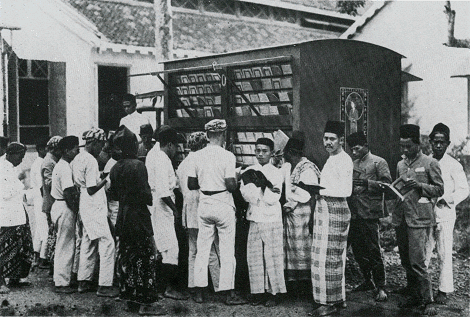
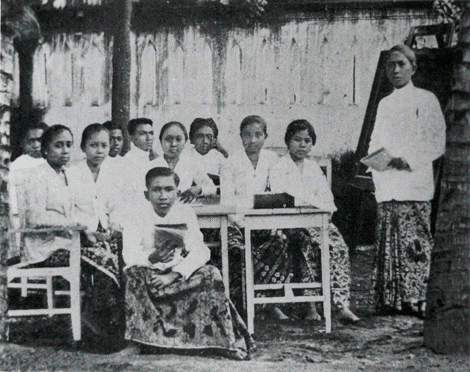
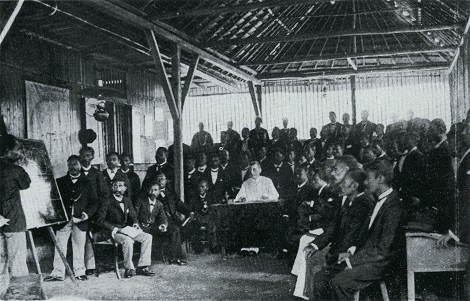
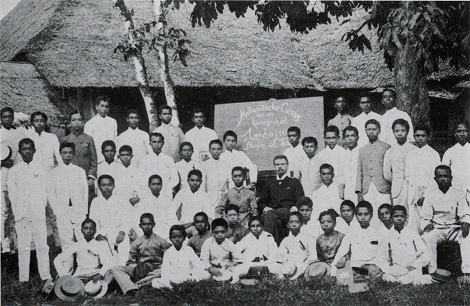
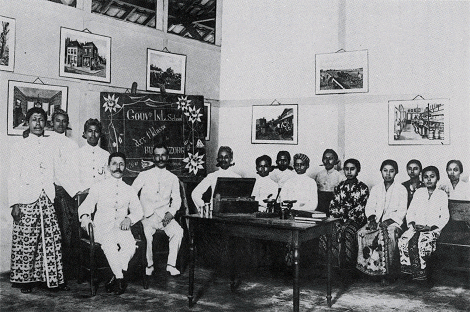





 Reply With Quote
Reply With Quote







Share This Thread